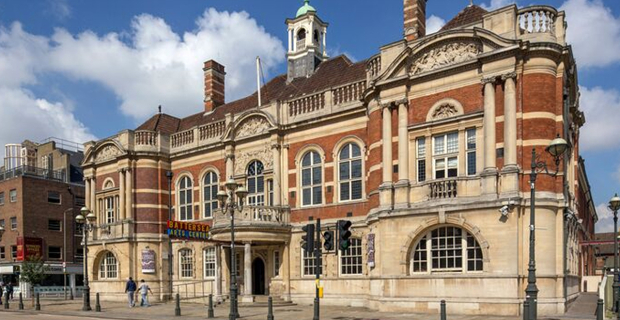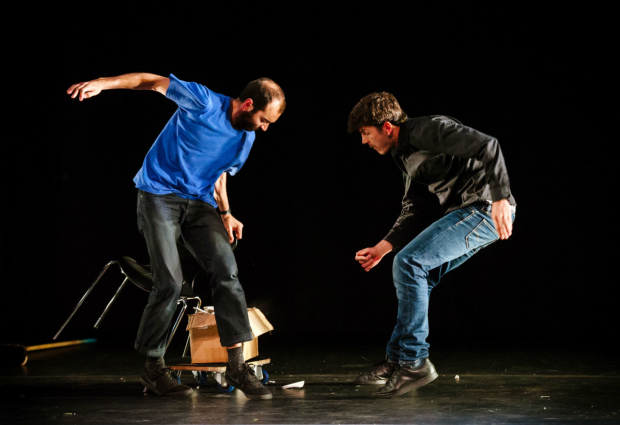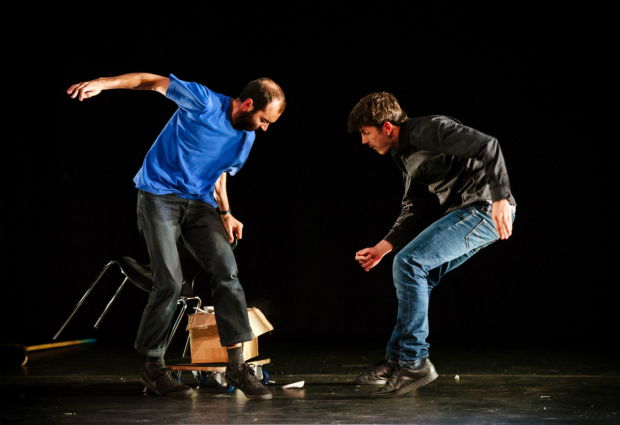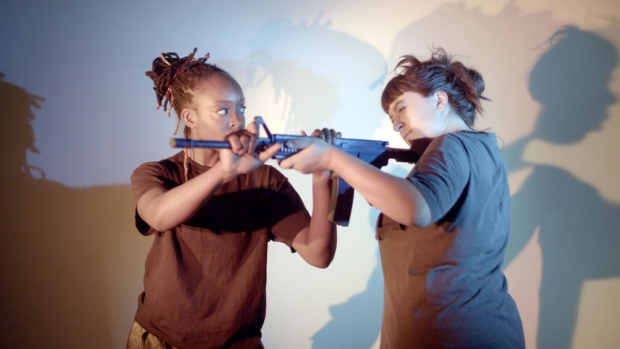Review: Eurohouse / Palmyra (Battersea Arts Centre)
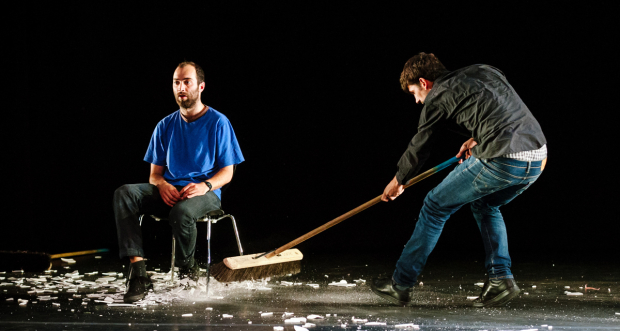
© Alex Brenner
According to a recent interview, collaborators Bertrand Lesca and Nasi Voutsas are on their way to a trilogy of plays. Two thirds down now, the performers take stock by presenting the brace of works as a double bill at Battersea Arts Centre before hopping over the Thames for a run at Shoreditch Town Hall later this month.
Eurohouse and Palmyra, premiering at consecutive Edinburgh Fringes, may feel like a simply practical double billing, but, in a case of amounting to more than the sum of their parts, the two fascinate as a coupling, complementing one another, both tackling contemporary issues with a healthy dose of subversive clowning.
Remember when Greece hosted the Olympics? It feels like only yesterday but, 14 years down the line, the world has had a shake up – an economic crisis in 2008 transforming the geopolitical situation in Europe into something more caustic, the interdependency of European nations switching from a noble cause into a saddling circumstance. That's the context of Total Theatre Award-nominated Eurohouse, with the EU distilled and presented by the two performers, the relationships of states reenvisioned with Frenchman Lesca (with a cheeky smile and twinkle in his eye) and Grecian Voutsas (bearded with a vintage tee) acting as proxies for their home countries. The former, hogging M&Ms, calls the shots, chatting to the audience, asking for their names, controlling the lights and choosing the music, while Voutsas, reliant on chocolate-y hand-outs, has to play by his partner's tune, nodding along.
Dissonance begins to slowly reveal itself as the pair go through cyclically skit-like routines – eating their sweets, staging rudimentary acrobatics, dancing along to Claude François. What starts off as grandstanding devolves into a subtle power play between the one person and another, a nation and another. As Voutsas begins to rebel, wanting to "Go His Own Way" as Fleetwood Mac cries, Lesca refuses to cooperate. Thematically, it's a tight reflection on the EU, told from a perspective that most on either side of the Brexit debate rarely consider.
If Eurohouse simmers with passive aggression, then Palmyra lets it boil into all-out violence – spasmodic, unexpected, howling and hammer clenching. Shifting the focus from European economics to the cultural impacts of the Syrian conflict, the pair go through an hour-long confrontation, smashing plates, Lesca mocking Voutsas, turning performance into ruckus.
It is uncomfortable, at times scary to watch. The steady didacticism of the first part gives way to a frantic, intimidating second. Bert's charming patter with the audience becomes maniacal, almost garish. Where once he tried to foster a sense of community by learning names and asking for favourite songs, now he calls on people by their first name, signalling their complicity as he beats Nassim, mocks him, attacks him for his illiteracy.
Both, separately, are charged pieces of theatre, perhaps hampered by the fact that reducing issues to an individual relationship omits some complexities. But when combined, with part two laden with references to part one, the two hours become a slow slide from amiability to savagery. Accord to discord. Jo Palmer's lighting shifts, the wide washes of Eurohouse become harsher, more shadow-laden beams of light in Palmyra. Dust rises from the remains of the plates littering the floor. As the stage is flooded with rubble, chairs are thrown aside and props are destroyed, the audience leaves the theatre having seen a relationship disintegrate and a spectacle fall apart.
Part three can't come soon enough.



